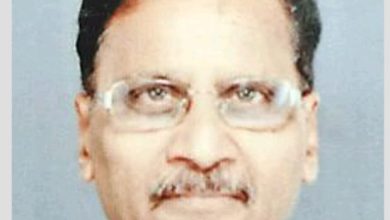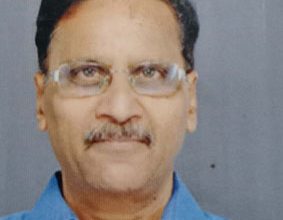Empowering Parliament: Unleashing the Power of Debate and Discussion

Yash Pal Ralhan
The impending inauguration of the new Parliament building on May 28th should be a moment of national pride and unity. However, it is disheartening to witness the controversy that has unfolded, with 20 opposition parties opting to boycott the event. As a concerned citizen, it is evident that these political maneuvers are nothing more than preparations for the upcoming parliamentary elections in March 2024. It is crucial to hold individual Members of Parliament accountable for their actions, as they are the representatives of the people.
Let us reflect on four pertinent examples that illustrate the divergent attitudes between individual members and their respective political parties. In the past, the Akali Dal resorted to tearing pages of the Constitution to highlight their demand for separate Sikh identity. Even Parkash Singh Badal, a five-time Chief Minister of Punjab, participated in this act. Badal, in a press conference, acknowledged that parties sometimes make difficult decisions, and members must adhere to party directives, regardless of personal disagreement.
Similarly, during the era of the Third Front, Jyoti Basu was proposed as a Prime Ministerial candidate, but the Communist Party of India (Marxist) refused to support his nomination. This led to Basu being labeled the “near Prime Minister.” Once again, the party’s instructions superseded individual aspirations.
In another instance, Somnath Chatterjee, while holding the position of Speaker in the Lok Sabha, defied his party’s demand for resignation. He rightfully asserted that as a constitutional office-bearer, party instructions did not apply to him, and he continued his tenure as Speaker.
Even the current Deputy Chairman of Rajya Sabha, a member of the Janata Dal (United), did not resign despite the absence of a political alliance between his party and the Bharatiya Janata Party. His commitment to his constitutional role prevailed over political affiliations.
Considering the current political landscape, it is worth noting the declining fortunes of these parties. The Communist Party of India (Marxist), which ruled for 34 years, now has zero representation in the state assembly. Similarly, the Akali Dal, once a prominent force, now only holds three seats in the assembly. The future of the Janata Dal (United) appears uncertain due to its ever-changing political alliances.
Unfortunately, the past few parliamentary sessions have been marred by disruptions and chaos, even over trivial matters. If this trend continues until March 2024, it will cast a shadow on the functioning of Parliament. At a time when India is hosting the G20 conference, such unhealthy political activities tarnish the country’s image globally. It is crucial to examine the underlying reasons for the opposition’s agitation.
It is regrettable that the inauguration of the new Parliament building has become a subject of controversy. The objection raised by the opposition, particularly the Congress, stems from the fact that Prime Minister Narendra Modi, rather than President Droupadi Murmu, will be inaugurating the building. While there is merit in the argument that the President should be accorded this honor as a constitutional component of Parliament, it is essential to rise above these differences and focus on the true essence of a parliament.
A parliament is not defined solely by its physical structure; it is defined by the quality of debates and discussions that take place within its walls. It is the forum where government policies and programs are thoroughly deliberated before being transformed into legislation. When concerns are raised regarding the effectiveness of Parliament, the government bears a moral responsibility to empower and dignify this institution, ensuring that it genuinely represents the aspirations of the Indian people.
In the face of this controversy, it is imperative for all political stakeholders to prioritize the greater good of the nation over personal or party interests.
==================






